Rep. Karen Hurd on placement of refugees around Wisconsin
State Rep. Karen Hurd, R-Fall Creek, discusses a bill in the Wisconsin Legislature mandating involvement by elected officials at a regional level when refugee resettlement is planned in a community.
By Marisa Wojcik | Here & Now
February 15, 2024 • West Central Region
VIDEO TRANSCRIPT
Marisa Wojcik:
Please tell me where this issue of refugee resettlement in the Chippewa Valley started for you.
Rep. Karen Hurd:
It started for me in October of just this past year, 2023, so a few months ago, I got a call from one of my constituents, and actually it wasn't one, I started getting many, many calls, emails, emails, calls, saying, "Did you see the TV 18 report?" "What TV 18 report? "No, I haven't seen it." "We're going to get refugees in Eau Claire. "We're gonna have 75 refugees come in. "And did you know about this?" I said, "No, I didn't know about it." And "Does anybody know about it?" And I said, "I will find out. "Do you have any details?" "I don't have any details." And so that is when I started to investigate it. And so I talked to the head of World Relief. World Relief is the name of the organization that our, that helps settle refugees in the United States. And then I also talked to the state coordinator. We have a state refugee resettlement coordinator for the state of Wisconsin and talked to them. And what occurred is that in the US code, and I also looked at the U.S. Code, and I also talked to Congressman Tiffany and Congressman Van Orden. I mean, I went to everybody and Senator Johnson and all of them, in the U.S. Code in 1980, there was a Refugee Resettlement Act. And so refugees can come and they're under a vetting process. They have to be vetted and they have to go through quite a large number of steps that can take seven to 10 years, you know, that they're in whatever country they're in. And before that they are finally approved, if they're approved, to be able to finally arrive in the United States. And then a third party organization like World Relief and there's Catholic Charities and Lutheran Social Services. There's 10, they have to be certified by the United States government that they are legitimate refugee resettlement organizations. And right now we have 10 of those. World Relief is one of 'em. And so by the U.S. Code, that organization is required to have quarterly meetings and to do contact and coordinate with state and local government before bringing the refugees in. So that is part of the U.S. code. And so when I brought that to World Relief's attention, the head of the world relief for the office in Eau Claire, and then to the secretary to the refugee resettlement head here at the state level, they said, "Well, we did coordinate with government." And I said, "Well, what governmental official "did you coordinate with?" "Well, with the city manager." And so what the phone calls that I were getting from my constituents, and they were not just a few, I mean we we're talking about hundreds and hundreds and hundreds, which I have had more calls about this than any other issue. People always think the abortion issue a big, not for the people that have been calling me, the big issue was this one. We just wanna know what's going on. We don't feel like, where are they coming from or what are we even, the big question was with what's going on with Eau Claire. At that time, we didn't have the HSHS closure. That was October. And that HSHS has just happened a couple weeks ago. But we have a homeless problem in Eau Claire. We have, you know, schools that are struggling. I had a person from the school district, which is right, joining Eau Claire in Altoona, mothers that are calling me that are crying, saying, "I don't even feel like my child's "getting the attention." And they had a failed referendum last year in Altoona. "And so we don't have the money to take care of our own kids "and have a classroom space. "So how can we take more kids?" Because the settlement is not, what the US law says is that they can settle within a hundred mile radius. And so from what I was told by the refugee coordinator, that they were gonna stay mainly in Eau Claire, but there's a settlement in Barron. And so they wanted to be able to be settling north and towards Barron up into the Chippewa area. And so the people just wanna know, did you contact, you know, the elected officials, are they in on it? And that's where, that's where a step was missed. That's what there was, there wasn't any coordination done with the Eau Claire County Board or with the Chippewa County Board. In fact, they didn't even know that Chippewa County had part of the city of Eau Claire in it. They, the third party agency didn't know. So they were coordinating with stakeholders, but they left out the elected officials. And so county sheriffs in Chippewa didn't know, didn't know in Eau Claire, they didn't have any word. The city council didn't even know. So it was, that was the problem because the people, they used this expression to me over and over. "We are having taxation without representation. "We want our elected officials to be in on the process "so they can say, yes, we have the schools "that can handle it." We have the county is the one who has to pay for all the services for health and human resources so that if you don't have a job, you need, you know, assistance. If you need medical assistance, all of that is handled by the county because the government, the federal government only pays for 90 days of help to the refugees. Then all that goes away. Then the community has to absorb those costs. And if you come in as a refugee, you have the same status as any other citizen. They're not citizens yet. But you have the same status to be able to access any of the care. You know, whether it's healthcare, you know, schools, housing, you have the same rights as a citizen. And so that's all these people that are calling me and saying, "Are we prepared? "Do we have the infrastructure in place?" And we'd like our city elected officials to be able to evaluate it and say, I had for instance, the Eau Claire, chief, head of the budget committee, he has talked to me so many times, sent me texts, emails, and saying, "We don't have the money in Eau Claire County "to sustain this. "We already have a problem with enough money with DHS," that's the Department of Health Services in Eau Claire, "that we are having a very difficult time funding "what we have to fund already. "We cannot take on an additional burden." I said, "Well that is up to the county." And the county has since voted. They took a vote to, you know, to welcome them. Which is fine. Which, but that all happened after the fact is be, it actually just blew up. And so that was a problem.
Marisa Wojcik:
World Relief says that, as you said, they did have a lot of conversations with stakeholders and I mean since October, November. Now we're in February and so more conversations have happened and that they have found, by and large, people are very excited for these people. And that overall, 75 people is not that much in the grand scheme of things when in the Chippewa Valley there's hundreds of thousands of people. So why are 75 people who, for all intents and purposes, could be 75 people coming from neighboring cities, other cities in Wisconsin, neighboring states, they have kind of the same statuses, they can work — why is that causing so much consternation?
Rep. Karen Hurd:
It is actually, it's not the people coming in, it was just that the public wasn't aware of it because 75 people coming in from Minnesota or other state, they're coming here on their own. They have the money to come here on their own. They're moving their families here and they get a job. I mean, there are people like you and I and so, but these are people that are most likely going to be dependent upon services. And so that, it was just that they weren't notified. It's not, it's nothing against the refugee process. It's nothing against people as you know, the people of Wisconsin, we are loving. I think we're some of the kindest, loving people. We give the shirt off our back to anybody in need. But there's something else about Wisconsinites. We're very practical. I have learned that in running for office and everything. It's just, they're very practical. "Do you have enough time to do this, Karen?" "And can you do this job and this job and be a state legislator?" "No, I don't think you can." So I'm not voting for you because you can't do all these jobs at once. They're, I mean, they're practical. Can we support this? And so if we can, if the, they just want the county governments and those that are elected officials to be able to weigh in and say something instead of just an unelected official making the decision. And because it does affect the community, because they do have to pay for the services that these people will be receiving. So they just wanted to be, they just wanna be part of it. That's all. They just wanna be informed and have the government be transparent.
Marisa Wojcik:
One thing World Relief told me is that over a span of time, the amount of money that these folks put into the economy and pay in with taxes is significant compared to the services that they receive — like studies have been done. So, you know, is there really a need for concern over a drain of resources if it balances out that they are contributing members to society?
Rep. Karen Hurd:
Yeah, and that would be up to the counties to decide because I don't know Chippewa County's budget, I don't know Eau Claire County's budget. And that would be up for them to decide, do we have the money to fund this until the 10 year mark when they are, you know, contributing back, you know? And so we did look at stats from the State Department and the department and met with the State Department and the Department of Homeland Security and the Department of Health and Human Services from the federal level. Representative Van Orden, Congressman Van Orden, Congressman Tiffany was there as well as the local representatives. We met with them last Monday. And they showed us how over a long number of years that they could be then actually contributing, which we think is great. We have a wonderful Hmong population in the Chippewa Valley. And they are wonderful people, hardworking, very wonderful people. It's not against a people or a person, it is just, do you have the resources right now? And very well may, but just let the county boards decide that, you know, let them have a say in it because that's why we elect representatives. I mean, I hope that, you know, you would think that I would know about the problems going on in the state so that I could represent you. And so that's why they elect these county board supervisors so that they could say, "Yes, we think it's fine. "We're good everybody." That's all they wanted. And I actually told World Relief that way back in October. I brought it up to the head, the local head of the World Relief and I said, "This is gonna blow up." I said, "I'm already getting hundreds of phone calls." He said, "We can stop this right now. "Just go to the Chippewa Clerk of the County "and just say, "I need to schedule a meeting "with the county board and meet with the county board," "and say, "we'd like to bring in some refugees," you know, "and just inform you of it. "Can we work with you and go to the Eau Claire County board "and you know, whatever counties are going to be affected "by this and just work with them." And they wouldn't. It's like they're, aren't they stakeholders too? Aren't our elected officials, stakeholders also,
Marisa Wojcik:
Were they refusing to work with them or they just hadn't had a chance?
Rep. Karen Hurd:
Her exact words were, "No, I won't, I have to check "with headquarters and I'll get back with you." And I called her back two more times and she said, "We're still checking." And they never did. And finally, because it blew up and was on the news and they had the protest and all kinds of other things, Chippewa County Board Chairman contacted them and insisted on a meeting, but they never got ahold of them. And so then the meetings were started because of the public outcry. Just have the meeting with our officials. I said it was so simple. Just include them on the conversation. They're elected officials, they should be included because otherwise, because it looks sneaky, that's what it, that's why everybody's, it looks sneaky. And it's just like, it doesn't have to be sneaky. Just talk to your elected officials and then everything's out in the open. So there is no problem. And then I'm telling you, the people of Eau Claire and Chippewa will probably say, "That's great. "Let's help them." Now, I don't know if they'll say that right now HSHS. They're very upset about HSHS. This is a crisis there. But beforehand, so I just needed to know. And so I will say I will give credit to World Relief and to, especially to Ms. Martinez, who is the State Refugee Coordinator. She has been wonderful. Her name is Bojana Martinez. She's been absolutely wonderful. And the refugees were already supposed to be here. They were supposed to come before Christmas and then they put it off to mid-January. They're still not here. And that reason is, is that because they have, they realized that some steps had been skipped. And it's not all third party organizations that skipped steps. I just went through a senate and assembly hearing. Because I proposed a bill to say, let's, we just wanna make sure you just talk to the elected officials to make them part of the stakeholders, state and local government, that would be the elected officials, just make them part of the stakeholder when you meet, you know, include them please. That's all this bill says. And so when we had the hearings on that, we had it yesterday and the day before then we heard from the different, you know, they're called VOLAGs, they're these voluntary third party nonprofits. And several of them came the Catholics Charities and the Lutheran Services and several of them said, we already do that. That's one of the first people we contact. You know, as we, and we asked and it was very specific because we also asked the federal employees, there's not a specific delineated you need to contact this, this, this, this, this person. It just says state and local government in the US code. So it's up to each one of those VOLAGs to be able to say, okay, these are the check boxes that we go through that we've contacted each one of these people. And so several of those organizations that testified in committee said these are the first people we contact is the mayor. Perfect. That's it. All done, everybody's happy. That's all we wanted. Just could you contact the mayor? Could you contact the county board chair? That's all we wanted. That's all this bill wants to do, just make them part of the stakeholder group. That's all.
Marisa Wojcik:
One thing that World Relief told me is that this would trigger any state and local government, any board or body within a hundred mile radius to take this up for consideration and then possibly vote on a resolution about it and that it would be, the trigger would be really sensitive and so it would be an inordinate amount of requirements for school boards that will never interact with one of these families or communities that will never come into contact with one of these families. And that this hundred mile radius is half the state in some cases and for the most part, these families settle very close to the center of Eau Claire. And the only reason why they don't send, house them close to where the actual organization is in the city is if they have family nearby. So does this bill put undue burden on all of these surrounding communities? You know, there's thousands of local bodies and town boards, village boards, school boards, where they have a lot on their plate already and this is just too much.
Rep. Karen Hurd:
I don't think it's a burden at all. It's actually very minimal because they just have to be notified and if they wanna be a part of the discussion, they can send a representative and if they don't. I serve on the village board in Fall Creek and so I have been there for several years now and we are always, you know, okay, who wants to be the point of contact and go to the watershed meeting or who's gonna be a part of, you know, the Lake District meeting or who's gonna be, and we always have to, you know, okay, I'll do that. You know, it's the extracurricular job on the board. And I mean, and then if you're not interested or you know, on a school board, it would be the same. They would say, "Oh, would you want to attend the meeting?" And they'll say, "No, we don't think there's any problem," and you don't have to attend. So it'd be those interested parties that want to, so the a hundred mile radius isn't something set by the state. That's set by the federal government. So I can't change that because that's their guidance is that their, that the refugees, they limit them. They can't move outside of that a hundred mile radius. But they had to put a radius on. That's with the federal government. I have talked to Congressman Tiffany and Congressman Van Orden and Senator Ron Johnson. I think, would you please look at amending the laws at the state level because it would take it all away if they would just put, "Coordinate with elected state "and local elected government officials." Just say elected in there. And then if they wanna keep the a hundred miles, it's up there or just say elected and then the whole problem's taken care of. But they don't have that language. I don't know if they'll, that language has been there for several decades now. But that's a federal problem. I can't change that. So we just want people be informed and if they don't wanna participate, they don't have to participate. They can say, "That's not gonna bother me. "That's 90 miles over. "Okay, we're not going to the meeting. "They'll handle it." So.
Marisa Wojcik:
Another item is the federal law says they do have to, these organizations do have to coordinate with local people and consult, but they do not have to receive permission. Is what you have in your mind, the equivalent of permission?
Rep. Karen Hurd:
No, not at all, input. That's all this is. Could we be at the table too? That's all we're asking. Can we be at the table too? That's all the rule is about. So it's just to say, I already said it, input.
Marisa Wojcik:
Is there a lot of misinformation and confusion around refugee resettlement and the difference between someone who is a refugee who has been waiting in their own country for years to be vetted and approved and then flown into the United States versus someone who is seeking asylum at the U.S.-Mexico border and they're in a much different legal limbo than someone who is of refugee status.
Rep. Karen Hurd:
Yes, I would say there is confusion and that is why I state in every place I go. And I'm glad you brought it up because I'll state here, unequivocally, there is a huge difference. A refugee is vetted by our government and it's a very rigorous process they go through. That takes years and years for them to finally be approved. That's a refugee. There are two different types of immigrants. There's legal immigrants and they go through a process too. And we have some wonderful legal immigrants that are, you know, in our country that are doing great work. Then there's the illegal immigrants. Everybody's very aware of that with our southern border and what's going on there. That's the illegal immigrants. And then we have like the Afghanis, when they came over, when, you know, and when we had the withdrawal from Afghanistan, they're under a completely different situation too. None of the current laws apply with them. Actually, the Secretary of State explained to us that they were under a whole different chapter in the law and they're completely different. So refugees are the ones that are different. And I'm always making that distinction. These are for refugees, not immigrants, illegal immigrants because that's really what most people would worry about is illegal immigrants because everybody else is legally coming in.
Marisa Wojcik:
World Relief made the distinction that even if there were more resources put towards the refugee resettlement process, then there might be relief at the US southern border, U.S.-Mexico southern border, because there are less people who are waiting for a long, long time to go through the vetted refugee resettlement process and so they can't wait anymore. And so they have to go through the southern border. Would you at all be supportive of expanding the refugee resettlement program since it does have a more robust system of approving people?
Rep. Karen Hurd:
Well, the money, it really doesn't, the real issue is the number of refugees that can come in. That's set by the United States President, every year it's set. And so this year it's set at 125,000. And if you go back and look through the years, there's all kinds of different numbers through the years. And so they, the government is willing to pay the money for whatever it is. It's just, it's the process. When we sat through that briefing with the Secretary of State, this just Monday, so just four days ago, they went through the vetting process in detail. It's not a money issue. It is just a tremendous amount of information and coordination that has to be made because they are checking out all their records from their home country and then they are cross-referencing all kinds of database with the FBI, with the Department of Immigration with, I mean it's a huge incredible process. And so they're doing as many as they can and it's not a money issue, it's just a matter of the coordination and time. And then as far as the 90 days that's set in federal law, that that's how long they get. And then actually Department Homeland Security or Department of Health and Human Services, they will continue with some additional help to the refugees for a full year after they're here. Like with language interpreters. So they also are kicking in some funds. So 90 days that the Secretary of State's office that gives the money for housing, you know, for food, for, you know, all the basic needs to get settled. And then there's other help coming for another year for an up to a year.
Marisa Wojcik:
But I guess in theory, would you be supportive of that number being larger so that something like Whitewater where they have a large number of people who are — they're not legal, they're not illegal, they're just in a limbo status — are moving to that area and the local city and county are struggling to keep up? Would you support expanding refugee resettlement and the numbers of people that come through that program in order to relieve.
Rep. Karen Hurd:
I am supportive of people coming to our country as long as they're coming legally. So yes, absolutely. You know, let them come. I mean, we all were refugees at some point, our ancestors, I mean, this country belonged to the First Nation tribes, you know, so yes. But they have to come in legally. So, and refugees are coming in legally. Everybody should know that, they're coming in legally.
Marisa Wojcik:
Is there a message that you want to deliver to the refugees that will be coming in to the Eau Claire area?
Rep. Karen Hurd:
Yes. We want you to come and we want you to feel welcome and all of what we're doing is just making sure that we have the infrastructure to support you and making sure that everyone is at the table so we have a place for your children to go to school and a way that they can communicate, you know, so that, because they will have to have interpreters until they learn our language. And so we want you, we know you've been through hard times and this is a land of opportunity and we want you to be able to share in it, and thank you for going through the legal process. Thank you for taking the years that you have taken and all the trouble and all the paperwork and everything that you have done so that you can get to this place.
Marisa Wojcik:
And then is there something you want the people of the Chippewa Valley to know?
Rep. Karen Hurd:
Yes, for the people at Chippewa Valley, I want you to know I am fighting for your voice at the table. That's all that we're looking for is, could we have a seat at the table? That's all. And so your voice needs to be heard too. And I recognize you people of Chippewa Valley, you love people just like I do. And we wanna welcome all those, give us your poor and your hurting and your sick, and we will help them if we can.
 Passport
Passport





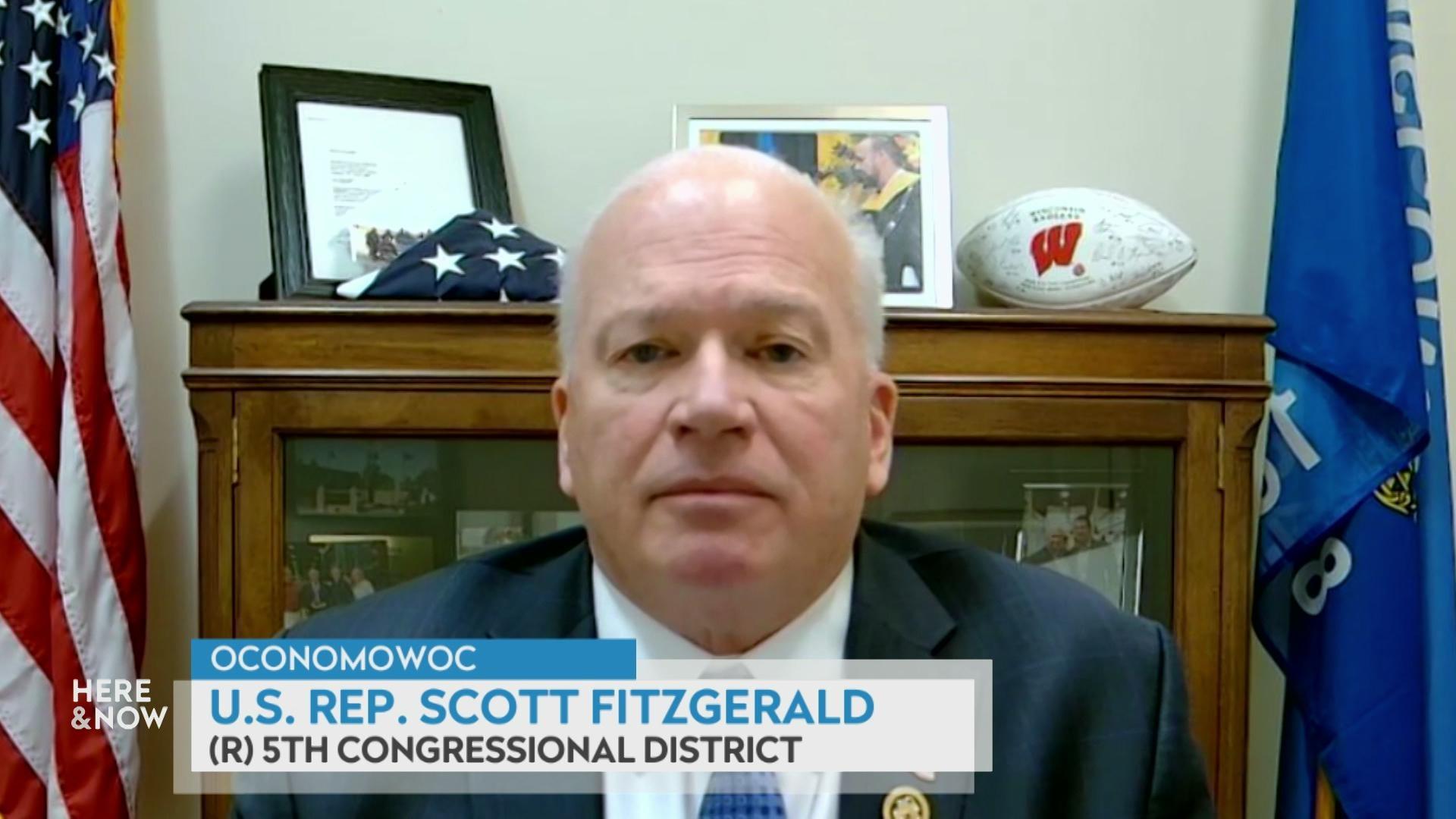
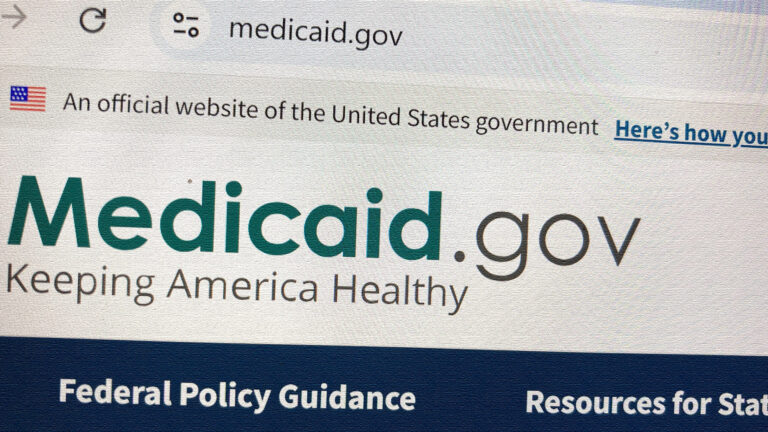
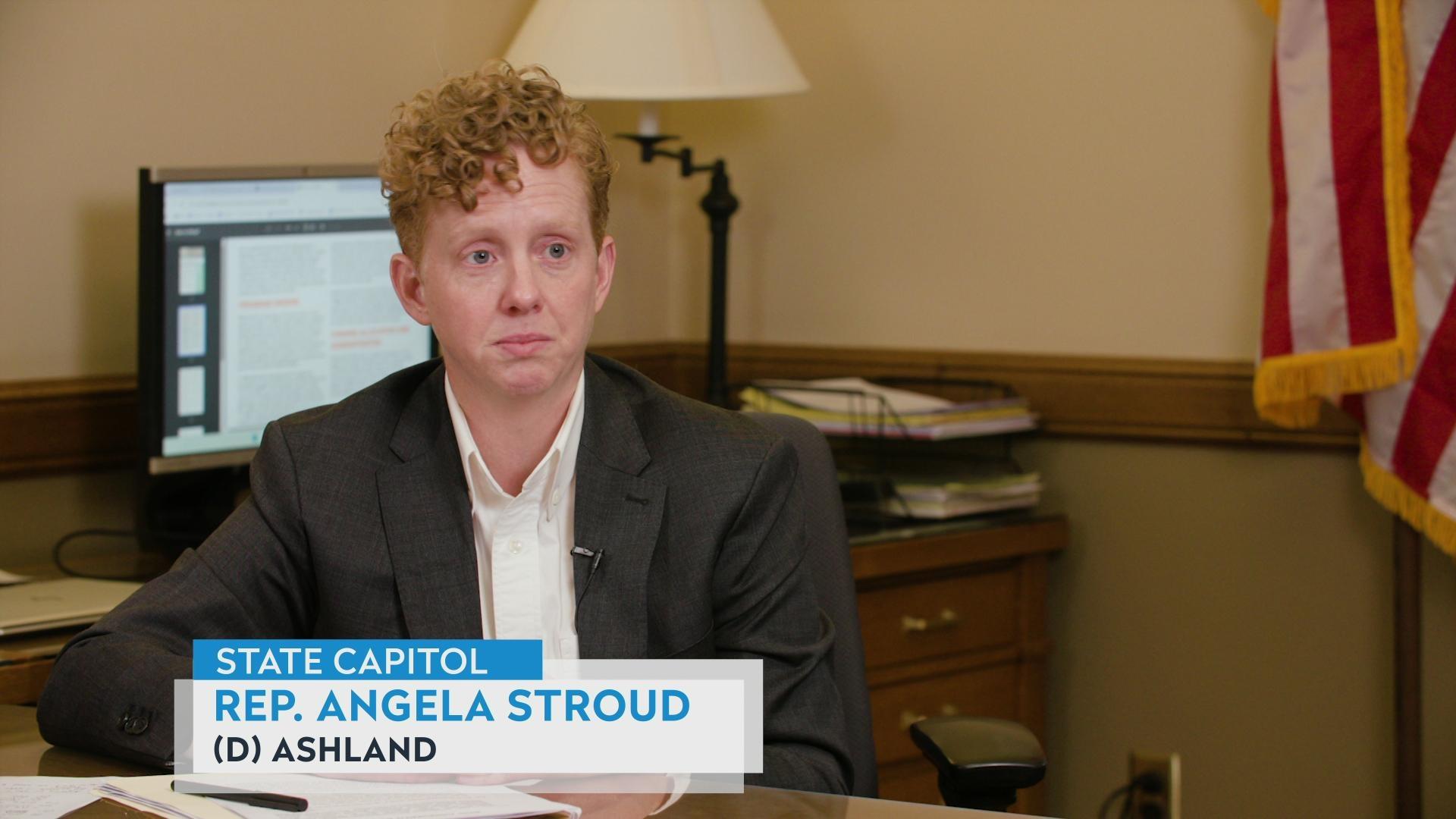
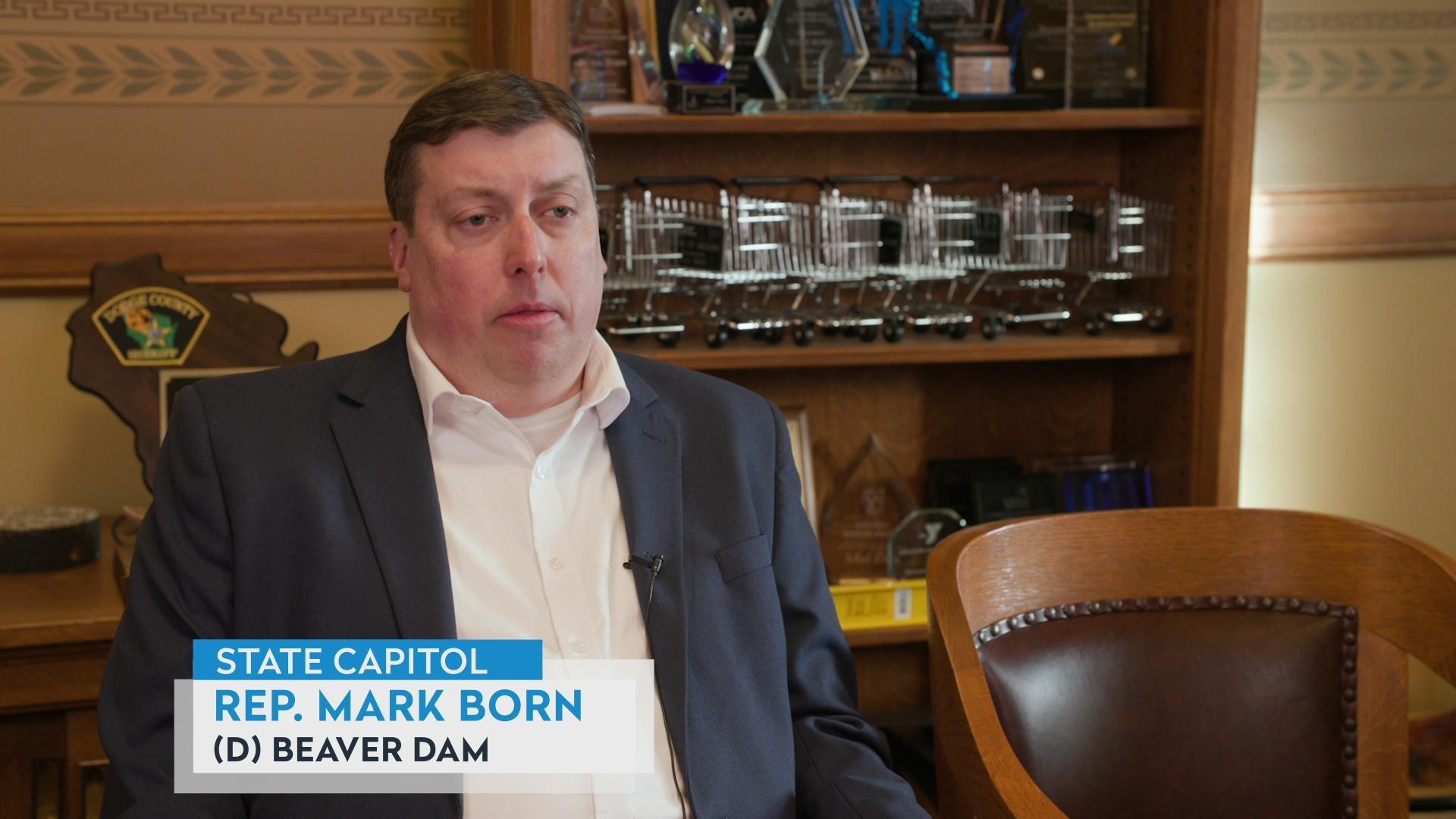
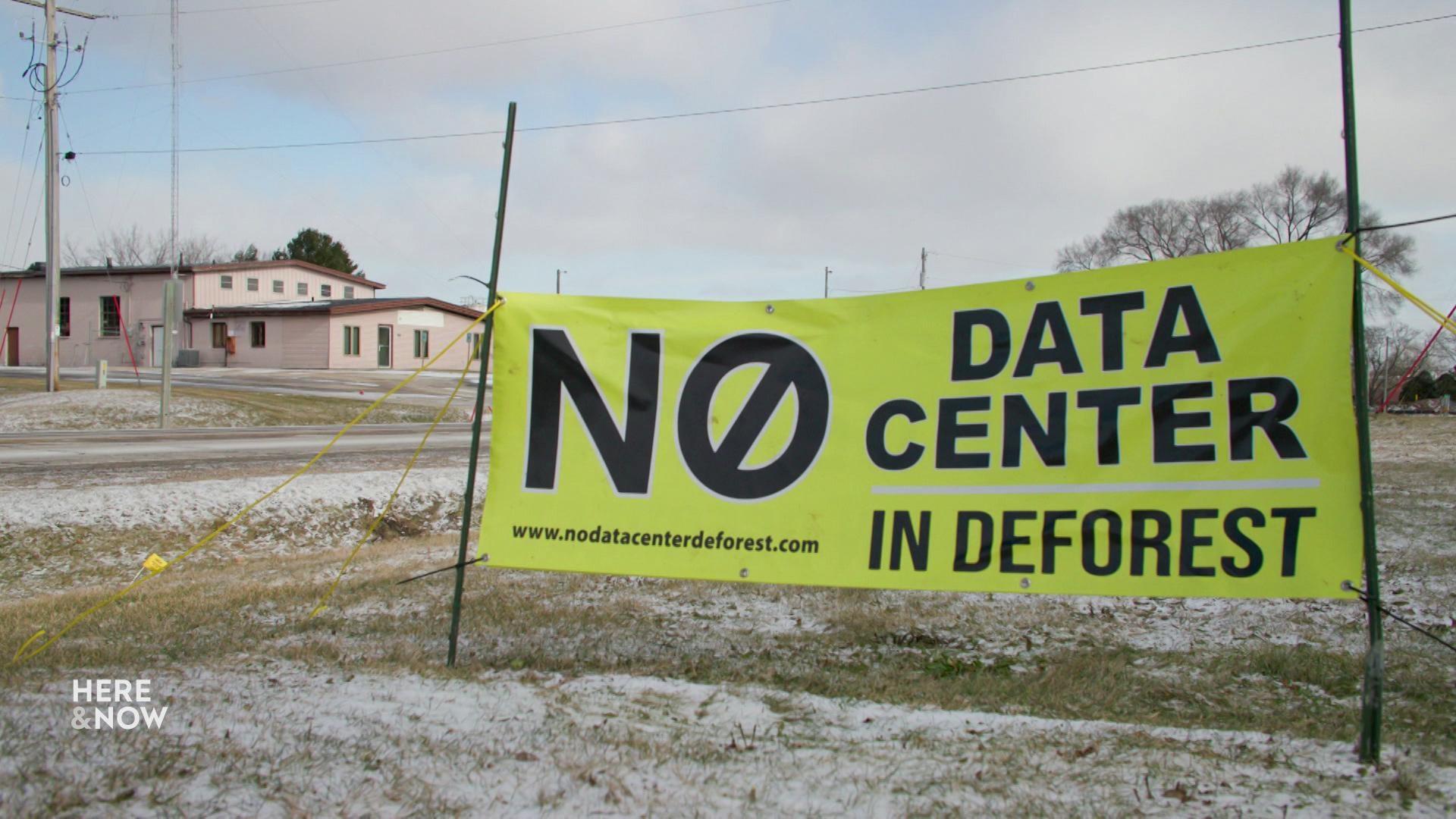

Follow Us